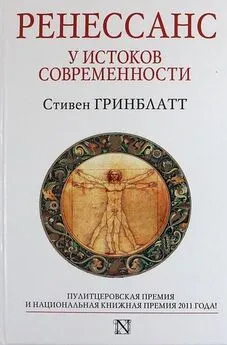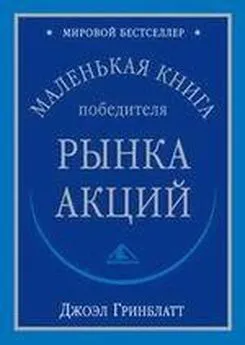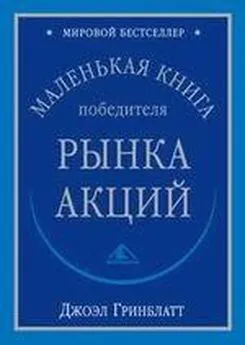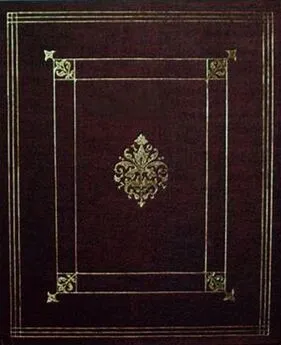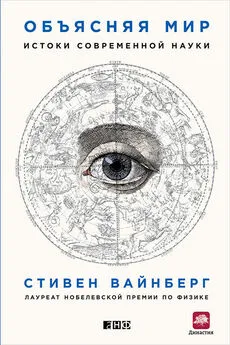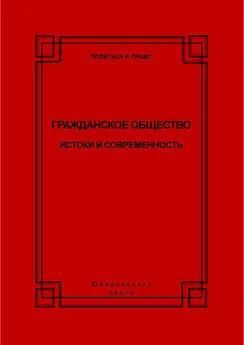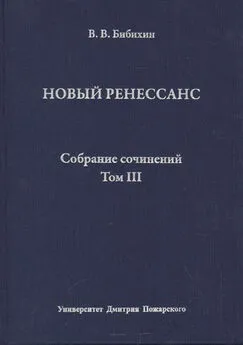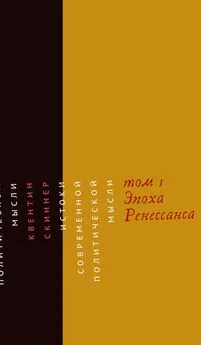Стивен Гринблатт - Ренессанс. У истоков современности
- Название:Ренессанс. У истоков современности
- Автор:
- Жанр:
- Издательство:АСТ
- Год:2014
- Город:Москва
- ISBN:978-5-17-080654-6
- Рейтинг:
- Избранное:Добавить в избранное
-
Отзывы:
-
Ваша оценка:
Стивен Гринблатт - Ренессанс. У истоков современности краткое содержание
Не было бы ни шедевров Леонардо да Винчи и Микеланджело, ни блистательного политического цинизма Макиавелли, ни всей эпохи расцвета наук и искусств, времени создания гениальных произведений живописи, литературы и философии.
Не было бы, если бы однажды собиратель старинных рукописей Поджо Браччолини не натолкнулся в монастырской библиотеке на некий старинный манускрипт…
Так была обнаружена считавшаяся доселе утраченной поэма Лукреция «О природе вещей», пролежавшая в забвении сотни лет.
Рукопись проповедовала крайне «опасные» идеи гуманизма и материализма, учила радоваться жизни, отрицала религиозное ханжество и мракобесие. Она повлияла на формирование мировоззрения Галилея и Фрейда, Томаса Джефферсона, Дарвина и Эйнштейна.
Возрождение поэмы из небытия изменило ход европейской истории.
Ренессанс. У истоков современности - читать онлайн бесплатно полную версию (весь текст целиком)
Интервал:
Закладка:
Dottori, Riccardo, ed. “The Dialogue: Yearbook of Philosophical Hermeneutics”, The Legitimacy of Truth: Proceedings of the III Meeting. Rome: Lit Verlag, 2001.
Downing, Eric. “Lucretius at the Camera: Ancient Atomism and Early Photographic Theory in Walter Benjamin's Berliner Chronik ”, The Germanic Review 81 (2006), pp. 21-36.
Draper, Hal. The Marx-Engels Glossary. New York: Schocken Books, 1986.
Drogin, Marc. Biblioclasm: The Mythical Origins, Magic Powers, and Perishability of the Written Word. Savage, MD: Rowman & Littlefield, 1989.
Dryden, John. Sylvae: or, the Second Part of Poetical Miscellanies. London: Jacob Tonson, 1685.
Dunant, Sarah. Birth of Venus. New York: Random House, 2003.
Duncan, Stewart. “Hobbe's Materialism in the Early 1640s”, British journal for the History of Philosophy 13 (2005), pp. 437-48.
Dupont, Florence. Daily Life in Ancient Rome, trans. Christopher Woodall. Oxford and Cambridge, MA: Blackwell, 1993.
Dyson, Julia T. “Dido the Epicurean”, Classical Antiquity 15 (1996), pp. 203-21.
Dzielska, Maria. Hypatia of Alexandria, trans. F. Lyra. Cambridge, MA: Harvard University Press, 1995.
Early Responses to Hobbes, ed. Gaj Rogers. London: Routledge, 1996.
Edwards, John. “Religious Faith and Doubt in Late Medieval Spain: Soria circa 1450—1500”, Past and Present / 20(1988), pp. 3-25.
Englert, Walter G. Epicurus on the Swerve and Voluntary Action. Atlanta, GA: Scholars Press, 1987.
Epicurus. The Epicurus Reader, trans, and ed. Brad Inwood and L.P. Gerson. Indianapolis: Hackett, 1994.
Erwin, Douglas H. “Darwin Still Rules, But Some Biologists Dream of a Paradigm Shift”, The New York Times, June 26, 2007, p. D2.
Faggen, Robert. Robert Frost and the Challenge of Darwin. Ann Arbor: University of Michigan Press, 1997.
Fara, Patricia. Newton: The Making of a Genius. New York: Columbia University Press, 2002.
— and David Money. “Isaac Newton and Augustan Anglo-Latin Poetry”, Studies in History and Philosophy of Science 35 (2004), pp. 549-71.
Fenves, Peter. A Peculiar Fate: Metaphysics and World-History in Kant. Ithaca, NY: Cornell University Press, 1991.
.— Late Kant: Towards Another Law of the Earth. New York: Routledge, 2003.
Ferrari, Mirella. “In Papia Conveniant ad Dungalum”, Italia Medioevalee Umanistica 15 (1972).
Ferruolo, Arnolfo B. “Botticelli's Mythologies, Ficino's De Amore, Poliziano's Stanze per la Giostra: Their Circle of Love”, The Art Bulletin [College Art Association of America] 37 (1955), pp. 17-25.
Ficino, Marsilio. Platonic Theology, ed. James Hankins with William Bowen; trans. Michael J.B. Allen and John Warden. Cambridge, MA, and London: Harvard University Press, 2004.
Finch, Chauncey E. “Machiavelli's Copy of Lucretius”, The Classical Journal 56 (1960), pp. 29-32.
Findlen, Paula. “Possessing the Past: The Material World of the Italian Renaissance”, American Historical Review 103 (1998), pp. 83-114.
Fleischmann, Wolfgang Bernard. “The Debt of the Enlightenment to Lucretius”, Studies on Voltaire and the Eighteenth Century 29 (1963), pp. 631-43.
.— Lucretius and English Literature, 1680—1740. Paris: A. G. Nizet, 1964.
Flores, Enrico. Le Scoperte di Poggio e il Testo di Lucrezio. Naples: Liguori, 1980.
Floridi, Luciano. Sextus Empiricus: The Transmission and Recovery of Phyrrhonism. New York: Oxford University Press, 2002.
Foster, John Bellamy. Marx's Ecology: Materialism and Nature. New York: Monthly Review Press, 2000.
Fraisse, Simone. L'Influence de Lucrece en France au Seizieme Siecle. Paris: Librarie A.G. Nizet, 1962.
Frede, Michael, and Gisela Striker, eds. Rationality in Greek Thought. Oxford: Clarendon Press, 1996.
Fubini, Riccardo. “Varieta: Un'Orazione di Poggio Bracciolini sui Vizi del Clero Scritta al Tempo del Concilio di Costanza”, Giornale Storico della Letteratura Italiana 142 (1965), pp. 24-33.
.— L'Umanesimo Italiano e I Suoi Storici. Milan: Franco Angeli Storia, 2001.
.— Humanism and Secularization: From Petrarch to Valla, trans. Martha King. Durham, NC, and London: Duke University Press, 2003.
Fusil, C.A. “Lucrece et les Philosophes du XVIIIe Siecle”, Revue d'Histoire Litteraire de la France 35 (1928).
.— “Lucrece et les Litterateurs, Poetes et Artistes du XVIIIe Siecle”, Revue d'Histoire Litteraire de la France 37 (1930).
Gabotto, Ferdinando. “L'Epicureismo di Marsilio Ficino”, Rivista di Filosofia Scientifica 10 (1891), pp. 428-42.
Gallagher, Mary. “Dryden's Translation of Lucretius”, Huntington Library Quarterly 7 (1968), pp. 19-29.
Gallo, Italo. Studidi Papirologia Ercolanese. Naples: M. DAuria, 2002.
Garaudy, Roger. Marxism in the Twentieth Century. New York: Charles Scribner's Sons, 1970.
Garin, Eugenio. Ritrattidi Unamisti. Florence: Sansoni, 1967.
.— La Cultura Filosofica del Rinascimento Italiano. Florence: Sansoni, 1979.
Garrard, Mary D. “Leonardo da Vinci: Female Portraits, Female Nature”, in Norma Broude and Mary Garrard, eds., The Expanding Discourse: Feminism and Art History. New York: HarperCollins, 1992, pp. 59-85.
Garzelli, Annarosa. Miniatura Fiorentina del Rinascimento, 1440—1525. Florence: Giunta Regionale Toscana: La Nuova Italia, 1985.
Ghiselin, Michael T. “Two Darwins: History versus Criticism”, Journal of the History of Biology 9 (1976), pp. 121-32.
Gibbon, Edward. The History of the Decline and Fall of the Roman Empire, 6 vols. New York: Knopf, 1910.
Gigante, Marcello. “Ambrogio Traversari Interprete di Diogene Laerzio”, in Gian Carlo Garfagnini, ed., Ambrogio Traversari nel VI Centenario della Nascita. Florence: Leo S. Olschki, 1988, pp. 367-459.
.— Philodemus in Italy: The Books from Herculaneum, trans. Dick Obbink. Ann Arbor: University of Michigan Press, 1995.
Gildenhard, Ingo. “Confronting the Beast—From Virgil's Cacus to the Dragons of Cornelis van Haarlem”, Proceedings of the Virgil Society 25 (2004), pp. 27-48.
Gillett, E.H. The Life and Times of John Huss. Boston: Gould & Lincoln, 1863.
Gleason, Maud. Making Men: Sophists and Self-Presentation in Ancient Rome. Princeton: Princeton University Press, 1995.
Goetschel, Willi. Constituting Critique: Kant's Writing as Critical Praxis, trans. Eric Schwab. Durham, NC: Duke University Press, 1994.
Goldberg, Jonathan. The Seeds of Things: Theorizing Sexuality and Materiality in Renaissance Representations. New York: Fordham University Press, 2009.
Goldsmith, M.M. Hobbes' Science of Politics. New York: Columbia University Press, 1966.
Golner, Johannes. Bayerische Kloster Bibliotheken. Freilassing: Pannonia-Verlag, 1983.
Gombrich, Ernst H. “Botticelli's Mythologies: A Study in the Neoplatonic Symbolism of His Circle”, Journal of the Warburg and Courtauld Institutes 8 (1945), pp. 7-60.
Gordon, Dane R., and David B. Suits, eds. Epicurus: His Continuing Influence and Contemporary Relevance. Rochester, NY: RIT Cary Graphic Arts Press, 2003.
Gordon, Pamela. “Phaeacian Dido: Lost Pleasures of an Epicurean Intertext”, Classical Antiquity 17 (1998), pp. 188-211.
Grafton, Anthony. Forgers and Critics: Creativity and Duplicity in Western Scholarship. Princeton: Princeton University Press, 1990.
.— Commerce with the Classics: Ancient Books and Renaissance Readers. Ann Arbor: University of Michigan Press, 1997.
— and Ann Blair, eds., The Transmission of Culture in Early Modern Europe. Philadelphia: University of Pennsylvania Press, 1990.
— and Lisa Jardine, From Humanism to the Humanities: Education and the Liberal Arts in Fifteenth- and Sixteenth-Century Europe. Cambridge, MA: Harvard University Press, 1986.
Grant, Edward. “Bernhard Pabst: Atomtheorien des Lateinischen Mittelalters”, Isis 87 (1996), pp. 345-46.
Greenblatt, Stephen. Learning to Curse: Essays in Early Modern Culture. New York and London: Routledge Classics, 2007.
Greenburg, Sidney Thomas. The Infinite in Giordano Bruno. New York: Octagon Books, 1978.
Greene, Thomas M. “Ceremonial Closure in Shakespeare's Plays”, in Marino and Schlitt, eds., Perspectives on Early Modern and Modern Intellectual History: Essays in Honor of Haney S. Struever. Rochester, NY: University of Rochester Press, 2000, pp. 208-19.
Greetham, David C. Textual Scholarship: An Introduction. New York: Garland, 1994.
.— Textual Transgressions: Essays Toward the Construction of a Bibliography. New York and London: Garland, 1998.
Gregory, Joshua. A Short History of Atomism: From Democritus to Bohr. London: A.C. Black, 1931.
Gregory I, Pope. Dialogues. Washington, DC: Catholic University of America Press, 1959.
.— The Letters of Gregory the Great, trans. John R.C. Martin. Toronto: Pontifical Institute of Medieval Studies, 2004.
Grieco, Allen J. Michael Rocke, and Fiorella Gioffredi Superbi, eds. The Italian Renaissance in the Twentieth Century. Florence: Leo S.Olschki, 1999.
Gruber, Howard E. Darwin on Man: A Psychological Study of Scientific Creativity. Chicago: University of Chicago Press, 1981, pp. 46-73.
Gruen, Erich S. The Hellenistic World and the Coming of Rome. Berkeley: University of California Press, 1984.
Guehenno, Jean. Jean Jacques Rousseau, trans. John Weightman and Doreen Weightman. London: Routledge & Regan Paul, 1966.
Haas, Christopher. Alexandria in Late Antiquity: Topography and Social Conflict. Baltimore: Johns Hopkins University Press, 1997.
Hadot, Pierre. What Is Ancient Philosophy Ptrans. Michael Chase. Cambridge, MA: Harvard University Press, 2002.
Hadzsits, George D. Lucretius and His Influence. New York: Longmans, Green & Co., 1935.
Haines-Eitzen, Kim. Guardians of Letters: Literacy, Power, and the Transmitters of Early Christian Literature. Oxford: Oxford University Press, 2000.
Hale, John R., ed. A Concise Encyclopaedia of the Italian Renaissance. London: Thames & Hudson, 1981.
.— The Civilization of Europe in the Renaissance. London: Harper Collins, 1993.
Hall, Rupert. Isaac Newton, Adventurer in Thought. Oxford: Blackwell, 1992.
Hamman, G. L'Epopée du Livre: La Transmission des Textes Anciens, du Scribe a l'Emprimérie. Paris: Libr. Academique Perrin, 1985.
Hankins, James. Plato in the Italian Renaissance. Leiden: E.J. Brill, 1990.
.— “Renaissance Philosophy Between God and the Devil”, in Grieco et al., eds., Italian Renaissance in the Twentieth Century, pp. 269-93.
.— “Renaissance Humanism and Historiography Today”, in Jonathan Woolfson, ed., Palgrave Advances in Renaissance Historiography. New York: Palgrave Macmillan, 2005, pp. 73-96.
.— “Religion and the Modernity of Renaissance Humanism”, in Angelo Mazzocco, ed., Interpretations of Renaissance Humanism. Leiden: E.J. Brill, 2006, pp. 137-54.
— and Ada Palmer. The Recovery of Ancient Philosophy in the Renaissance: A Brief Guide. Florence: Leo S. Olschki, 2008.
Читать дальшеИнтервал:
Закладка:
